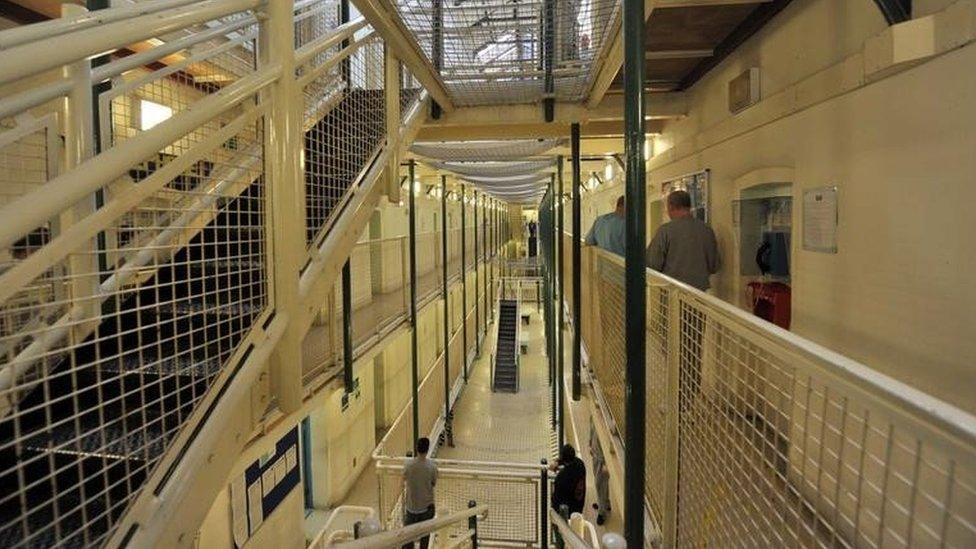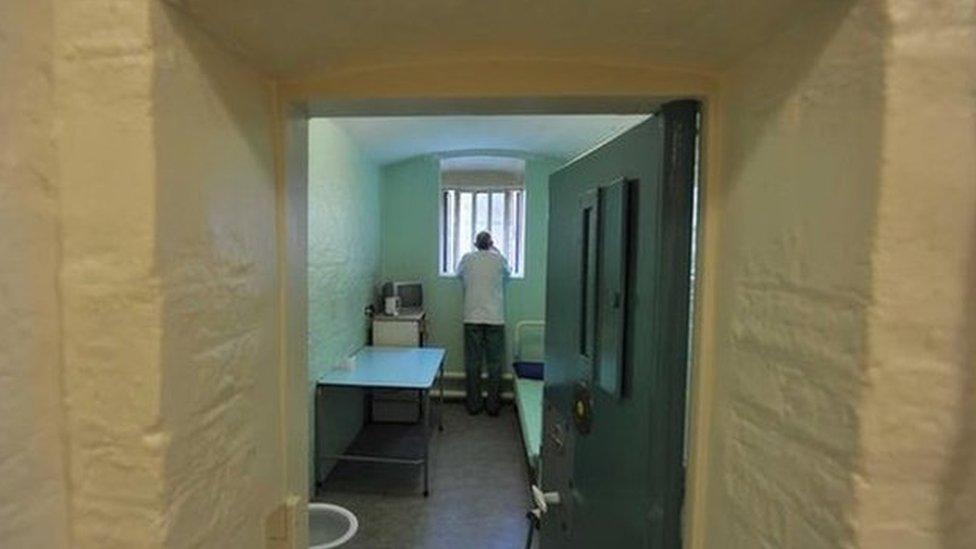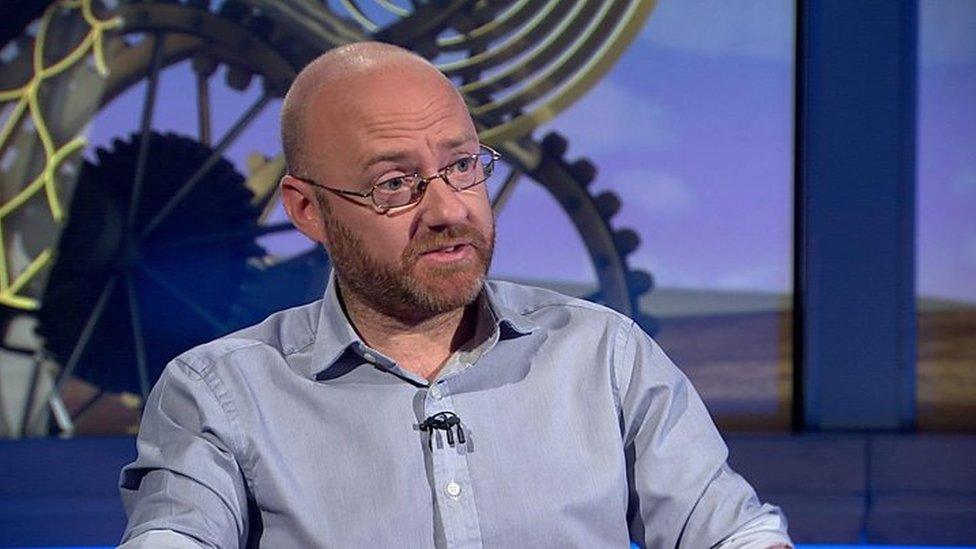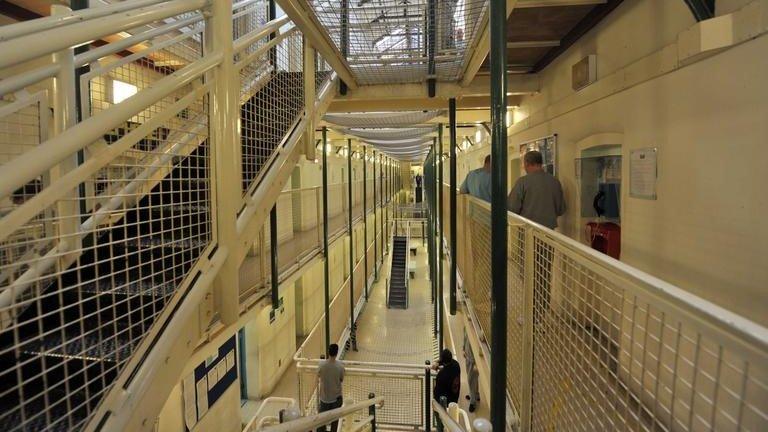MSPs discuss giving Scots prisoners the vote
- Published

The UK presently has a blanket ban on allowing prisoners the vote
MSPs have discussed the prospect of allowing prisoners to vote in Scottish elections.
Convicted prisoners have been prevented from voting in elections in the UK despite a series of legal challenges.
MSPs on Holyrood's equalities committee considered arguments and practical points, looking at whether devolved powers could be used to make a change.
Committee convener Christina McKelvie said the matter merited "careful consideration".
Members discussed how voting from behind bars could work, with one MSP suggesting that politicians could take part in hustings in prisons.
The European Court of Human Rights has ruled against the UK's blanket ban on giving convicted prisoners the vote on several occasions.
This had previously chiefly been an issue for Westminster, but with Holyrood taking on new powers over the administration of elections north of the border, MSPs are to examine the matter.
'Contract with society'
Voting rights for prisoners were briefly debated at Holyrood in 2013, in the run-up to the 2014 independence referendum. Green MSP Patrick Harvie suggested expanding the franchise, but saw his bid rejected by MSPs.
At the time, then Deputy First Minister Nicola Sturgeon said: "If somebody commits a crime which lands them in prison, they break their contract with society. Therefore they lose some of the rights the rest of us take for granted - that, as the law stands just now, includes the right to vote in elections."
Two prisoners took the matter to the UK Supreme Court, but were unsuccessful.

Prisoners have launched a series of legal challenges, but have not yet won the right to vote
With Holyrood taking on new powers, Mr Harvie said there was an "absolute requirement" to revisit the issue.
He told members: "The current blanket ban, in relation to the parliamentary franchise, is not compliant with human rights. And as the Scottish government and most of the Scottish political spectrum supports the continued existence of the Human Rights Act and compliance with human rights legislation, it is unreasonable to think we will simply continue to ignore the fact that we are not in compliance.
"There's a range of ways we could go on this, we could remove the ban altogether, or we could for example allow prisoners to vote who are nearing the end of their sentence. One argument is prisoners who are preparing to be released ought to be faced with issues around what it means to be a fully active participant in society.
"Voting is only one small aspect of that but it could be an important symbolic aspect."
Mr Harvie said it would be "entirely possible" for inmates to vote without having to leave jail, saying it was "not about a day release to go and vote at the local schools".
Prison hustings
Lib Dem MSP Alex Cole-Hamilton spoke in favour of lifting the blanket ban, and also said politicians should be prepared to hold hustings in prisons.
He said those behind bars should have "the right to challenge the government of the day, or hold their decision-makers to account for the conditions in which they are held".
He said: "I think politicians really should try and engage if we did extend the franchise to the prison population.
"It would be incumbent on us to try to engage with that population to take that opportunity to cast their vote, and maybe engage in hustings in prisons. I think lots of people would like to see us in prison from time to time."

Green MSP Patrick Harvie raised the issue of letting prisoners have the vote in the run-up to the 2014 independence referendum
The committee has also taken evidence from the Electoral Commission, the Law Society of Scotland, HM Inspectorate of Prisons for Scotland and an ex-offender, much of it focused on the practical aspect of allowing prisoners to vote.
In a written submission, the Electoral Commission pointed out that if prisoners were enfranchised, consideration would need to be given to how prisoners access information about policies, candidates and parties.
The Electoral Management Board for Scotland examined potential issues with different forms of voting - whether in person outside of prison, at an in-prison polling station, via a postal vote or through a proxy. They noted in particular the importance of maintaining the secrecy of ballots.
The Prison Reform Trust charity submitted a paper outlining "a clear and unambiguous case for reform", saying that "voting is not a privilege, it is a basic human right".
Meanwhile the Scottish Courts and Tribunals Service indicated that if the right was applied retrospectively this could result in a significant number of applications from the current prison population, potentially causing delays in the legal system.
- Published10 February 2015
